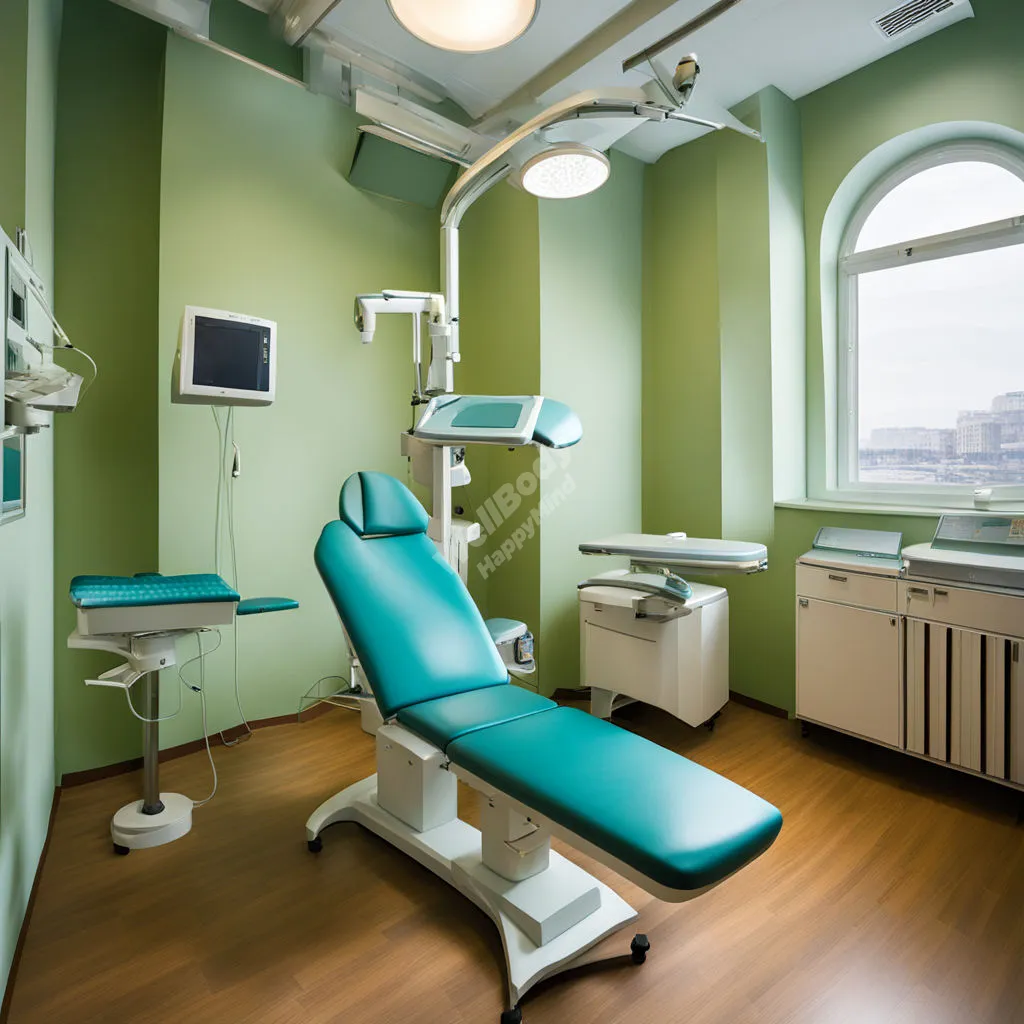The Top 4 Regular Check-Ups for Women’s Health

Did you know that regular health check-ups can add years to your life? It’s true! A study published in the BMC Health Services Research journal found that people who have regular check-ups are more likely to catch health issues early, leading to better outcomes and longer lives. As a woman, taking charge of your health through preventive care is one of the best gifts you can give yourself.
In this post, we’ll explore the top 4 regular check-ups for women’s health that can help you stay on top of your well-being. These essential medical exams for women are your secret weapons for early detection and maintaining a vibrant, healthy life. Ready to discover how these simple check-ups can make a big difference in your health journey? Let’s dive in!
1. Annual Physical Exam
Your annual physical exam is like a yearly health report card. It’s a chance for your doctor to give your body a thorough once-over and catch any potential issues before they become big problems. Think of it as your health’s yearly tune-up!
Here’s what you can expect during a comprehensive annual physical exam:
- Medical history review: Your doctor will ask about any changes in your health, family history, and lifestyle.
- Vital signs check: This includes measuring your blood pressure, heart rate, temperature, and respiratory rate.
- Physical examination: Your doctor will examine your body, listening to your heart and lungs, checking your reflexes, and looking for any unusual signs.
- Basic blood work: This can include tests for cholesterol levels, blood sugar, and other important health indicators.
Why is this exam so important? It’s your best tool for preventive care. Regular check-ups can help detect issues like high blood pressure or diabetes early on, when they’re easier to manage or even reverse. Plus, it’s a great opportunity to discuss any health concerns you might have with your doctor.
Remember, your annual physical is not just a routine – it’s an investment in your long-term health. By staying on top of these yearly check-ups, you’re taking a proactive step towards a healthier, happier you!
2. Gynecological Check-up

A gynecological check-up is a crucial part of every woman’s health routine. It’s recommended that women start these check-ups at age 21 or earlier if they’re sexually active. The frequency of these exams can vary based on your age and health history, but generally, an annual visit is a good rule of thumb.
Here are the main elements of a gynecological check-up:
- Pelvic exam: Your doctor will examine your reproductive organs to check for any abnormalities or signs of infection.
- Pap smear: This screening test checks for cervical cancer and is usually done every three years for women between 21 and 65.
- Breast examination: Your doctor will check for any lumps or changes in your breasts.
These exams play a vital role in women’s health. They can detect issues like:
- Cervical cancer in its early stages
- Sexually transmitted infections
- Ovarian cysts or uterine fibroids
- Breast abnormalities
Remember, many reproductive health issues don’t always have noticeable symptoms in their early stages. That’s why regular gynecological check-ups are so important. They’re your best defense for early detection and treatment of potential problems.
Don’t let embarrassment or fear keep you from these essential check-ups. Your gynecologist is a professional who’s there to help you stay healthy. By prioritizing these visits, you’re taking a powerful step in protecting your reproductive health and overall well-being.
3. Mammogram

A mammogram is a special type of X-ray designed to detect breast cancer in its earliest, most treatable stages. It’s like a superhero for your breast health, able to spot potential issues long before you or your doctor can feel them during a physical exam.
When should you start getting mammograms? The American Cancer Society recommends that women with average risk should start annual mammograms at age 45. However, you have the option to start as early as age 40 if you choose. After age 55, you can switch to every other year or continue yearly screenings.
Let’s address some common concerns about mammograms:
- Is it painful? While some women find it uncomfortable, the discomfort is usually brief.
- Is it safe? The benefits of early detection far outweigh the minimal risks from radiation exposure.
- What if they find something? Most abnormalities turn out to be non-cancerous, but early detection is key if it is cancer.
The importance of mammograms in early breast cancer detection cannot be overstated. Breast cancer, when caught early, has a 5-year survival rate of 99%. That’s a powerful statistic that underscores why this screening is so crucial.
Remember, a mammogram is not just a test—it’s a powerful tool for peace of mind. By staying on top of your mammogram schedule, you’re taking control of your breast health and potentially saving your own life. Don’t let fear or inconvenience keep you from this essential screening. Your future self will thank you for your diligence!
4. Bone Density Scan
A bone density scan, also known as a DEXA scan, is like a report card for your bones. It measures how strong and dense your bones are, helping to detect osteoporosis before a fracture occurs. Think of it as a proactive way to keep your skeleton strong and sturdy!
When should women start getting bone density scans? The National Osteoporosis Foundation recommends that women should have their first scan at age 65. However, if you have certain risk factors, your doctor might recommend starting earlier.
Speaking of risk factors, here are some that might increase your chances of developing osteoporosis:
- Being over 50 years old
- Going through menopause
- Having a family history of osteoporosis
- Being small and thin
- Smoking or excessive alcohol consumption
- Lack of exercise
- Low calcium and vitamin D intake
The role of bone density scans in preventing fractures and maintaining mobility cannot be overstated. Osteoporosis is often called a “silent disease” because you can’t feel your bones getting weaker. By the time a fracture occurs, the disease is already quite advanced.
A bone density scan can detect osteoporosis early, allowing you and your doctor to take steps to strengthen your bones before a fracture happens. This might include lifestyle changes, dietary adjustments, or medication if necessary.
Remember, strong bones are the foundation of an active, independent life as you age. By including bone density scans in your health routine, you’re investing in your future mobility and quality of life. It’s never too early to start thinking about bone health!
The Importance of Regular Check-ups
Keeping up with these four essential check-ups isn’t just about ticking boxes on your health to-do list. It’s about empowering yourself to live your best, healthiest life. Let’s recap why these check-ups are so crucial:
- Early Detection: Regular check-ups can catch potential health issues before they become serious problems. This is especially true for conditions like breast cancer or osteoporosis, which often don’t show symptoms in their early stages.
- Prevention: Many health conditions can be prevented or managed more effectively when caught early. Your annual physical and gynecological exams are key players in preventive care.
- Peace of Mind: Knowing you’re on top of your health can reduce anxiety and stress about potential health issues.
- Personalized Health Advice: These check-ups give you one-on-one time with healthcare professionals who can provide advice tailored to your specific needs and risk factors.
- Tracking Changes: Regular check-ups allow you and your doctors to track changes in your health over time, making it easier to spot concerning trends.
Remember, your health is your wealth. By prioritizing these check-ups, you’re investing in your overall well-being and quality of life. They contribute to not just your physical health, but also your mental and emotional well-being. After all, it’s much easier to enjoy life when you’re not worried about undetected health issues!
Taking proactive steps in managing your health isn’t always easy. It might mean scheduling appointments, facing fears, or making time in your busy schedule. But the payoff – a healthier, happier you – is worth every effort.
Conclusion

As we wrap up our journey through the top 4 regular check-ups for women’s health, let’s take a moment to recap these essential exams:
- Annual Physical Exam: Your yearly health overview
- Gynecological Check-up: Safeguarding your reproductive health
- Mammogram: Your breast health superhero
- Bone Density Scan: Keeping your skeleton strong
These check-ups are more than just medical appointments – they’re your personal health guardians. They work together to create a comprehensive picture of your health, catching potential issues early and helping you stay in top form.
Remember, while these check-ups are generally recommended for all women, your individual needs may vary. It’s crucial to work closely with your healthcare providers to determine the right schedule and types of check-ups for you. They can take into account your personal and family health history, lifestyle factors, and specific risk factors to create a personalized health plan.
As you leave this post, we hope you feel empowered to take charge of your health. Schedule that check-up you’ve been putting off. Ask your doctor about which screenings are right for you. Remember, your health is your most valuable asset, and these check-ups are your tools for protecting it.
Prioritizing your health isn’t selfish – it’s necessary. By taking care of yourself, you’re ensuring that you can be there for the people and pursuits you love. So, go ahead and make that appointment. Future you will thank you for it!
Here’s to your health, happiness, and a life full of wellness check-ups!



